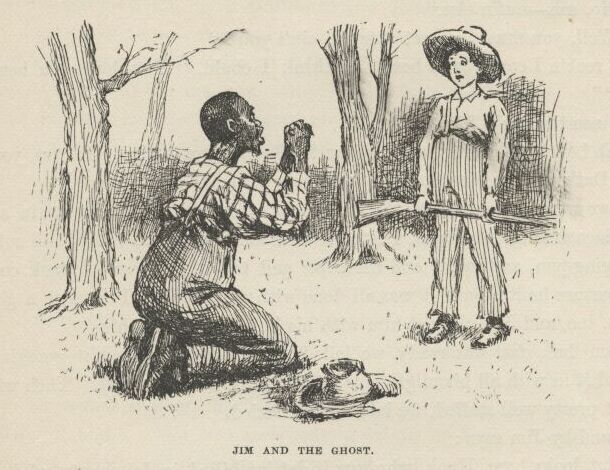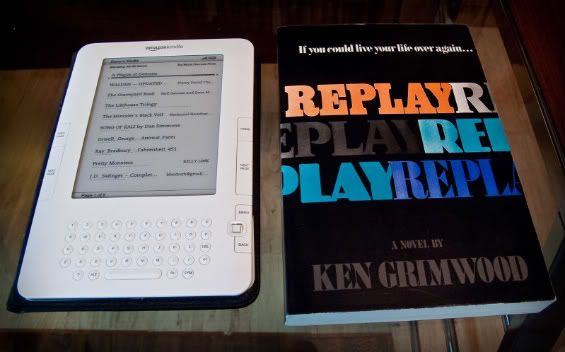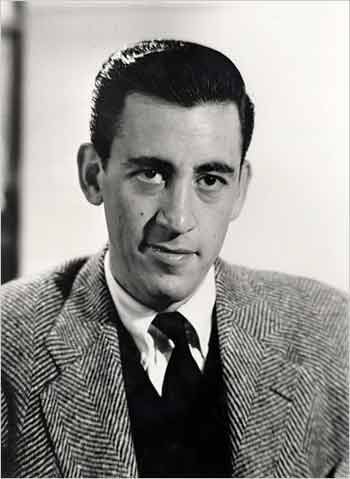Dear Huck Finn
Erasing the word 'nigger' from Adventures of Huckleberry Finn erase the dynamic that makes the book so memorable...
via Publisher's Weekly:
The word 'nigger' is synonymous with Southern culture from the early 1800s onward. It was as American as apple pie and baseball even past the Civil Rights Movement era. Though the negative stigma attached to its use has lessened the ease of its use, no doubt there are some people who still say 'nigger' as a term of hate towards Black people. That said, 'nigger', while hateful, is a part of Southern history, which is encapsulated in you, Huck Finn. Why are they trying to take some of your thunder away?
I'll tell you why: It's because people are uncomfortable with the ugly, hateful, detestable history of our country, and would rather whitewash over it with rosy rhetoric than paint the picture as it really was. It's because most people can't stomach the way 'nigger' was casually used in the South as not just a hateful word, but a general term for Black people. It's because people would rather gloss over the way things really were, to portray things the way they want them to be.
Somewhere in Anytown, Middle America, there is a 6th grade literature class going through a tour of classic American books, of which you are a part, Huck Finn. They're going to open your pages and take in the story, but instead of getting the truth - the real, gritty truth - they'll get the sugarcoated abridged version. They'll get the version in which Huck and Nigger Jim are equals in society's eyes, not the one where Huck first sees Jim as a 'nigger' before all else. Do people really want that? Do they want you to lose your effect. One of the reasons you were such a profound book is because of the candid portrayal of the racial attitudes that pervaded the U.S. at that time. Why would they want to rob you of that privilege? Why would they want to dilute you for the sake of safety? By taking 'nigger' out of your pages, the only bad vibe going away is the awkward moment when a white student has to say it around mixed racial company (I would've been able to live without that in my classroom). Censoring you, in essence is erasing the racist ideology that this country was built on, giving an imperfect and incomplete perspective on it. You, as a classic piece of literature, deserve more than that...
via Publisher's Weekly:
Mark Twain's Adventures of Huckleberry Finn is a classic by most any measure—T.S. Eliot called it a masterpiece, and Ernest Hemingway pronounced it the source of "all modern American literature." Yet, for decades, it has been disappearing from grade school curricula across the country, relegated to optional reading lists, or banned outright, appearing again and again on lists of the nation's most challenged books, and all for its repeated use of a single, singularly offensive word: "nigger."The term 'to whitewash', as defined by Dictionary.com, means:
Twain himself defined a "classic" as "a book which people praise and don't read." Rather than see Twain's most important work succumb to that fate, Twain scholar Alan Gribben and NewSouth Books plan to release a version of Huckleberry Finn, in a single volume with The Adventures of Tom Sawyer, that does away with the "n" word (as well as the "in" word, "Injun") by replacing it with the word "slave".
- to whiten with whitewash.
OR - to cover up or gloss over the faults or errors of; absolve from blame.
The word 'nigger' is synonymous with Southern culture from the early 1800s onward. It was as American as apple pie and baseball even past the Civil Rights Movement era. Though the negative stigma attached to its use has lessened the ease of its use, no doubt there are some people who still say 'nigger' as a term of hate towards Black people. That said, 'nigger', while hateful, is a part of Southern history, which is encapsulated in you, Huck Finn. Why are they trying to take some of your thunder away?
I'll tell you why: It's because people are uncomfortable with the ugly, hateful, detestable history of our country, and would rather whitewash over it with rosy rhetoric than paint the picture as it really was. It's because most people can't stomach the way 'nigger' was casually used in the South as not just a hateful word, but a general term for Black people. It's because people would rather gloss over the way things really were, to portray things the way they want them to be.
Somewhere in Anytown, Middle America, there is a 6th grade literature class going through a tour of classic American books, of which you are a part, Huck Finn. They're going to open your pages and take in the story, but instead of getting the truth - the real, gritty truth - they'll get the sugarcoated abridged version. They'll get the version in which Huck and Nigger Jim are equals in society's eyes, not the one where Huck first sees Jim as a 'nigger' before all else. Do people really want that? Do they want you to lose your effect. One of the reasons you were such a profound book is because of the candid portrayal of the racial attitudes that pervaded the U.S. at that time. Why would they want to rob you of that privilege? Why would they want to dilute you for the sake of safety? By taking 'nigger' out of your pages, the only bad vibe going away is the awkward moment when a white student has to say it around mixed racial company (I would've been able to live without that in my classroom). Censoring you, in essence is erasing the racist ideology that this country was built on, giving an imperfect and incomplete perspective on it. You, as a classic piece of literature, deserve more than that...


